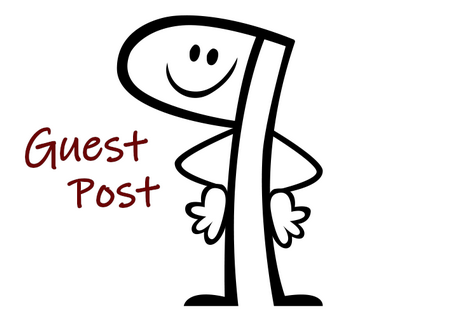Using Horror to Cope With Anxiety
Anxiety is defined as a feeling of worry, nervousness, or unease. Serious cases can induce negative compulsive behavior or even panic attacks. Horror as a genre is intended to evoke apprehension or dread.
Given this, it’s fair to ask: how can horror help one’s anxiety?
Well, it’s precisely because of this apprehension and dread that horror is such a powerful tool. What’s happening in a book or on a screen isn’t real. There’s no lasting impact. When you step back into reality, the threats causing you tension vanish. Some may experience lasting effects such as nightmares, but for many, horror allows us to experience fear in a safe environment. This experience can aid in processing related feelings, providing a valuable understanding of one’s emotions, why they arise, and how to deal with them. In fact, a branch of psychotherapy called exposure therapy works along these lines.
Exposure therapy has existed since the 1950s. The purpose is to provide people with a safe method to confront whatever triggers their fears. Humans tend to react to fear with avoidance, and exposure therapy is targeted at this gut response. Familiarity with a situation or thing tends to lessen the anxiety it causes, whereas avoidance can actively make it worse. Engaging or disengaging from anxiety’s root cause almost works like an inverse sliding scale. The more you lean into it, the less it impacts you.
That doesn’t mean it’s easy. There’s a reason that highly educated professionals dedicate so much training to exposure therapy. Fortunately, some of this can be tapped into on our own. Understanding and recognizing the mental and physiological impacts of fear can aid us in coping with anxiety when it strikes. If you react similarly to real-life crowds as you do to a fictional haunting, you can assess and question these responses side by side. What can you control? Are you in immediate danger? What’s one thing you can do to feel better right now? You may find that answering these questions in regards to a horror movie will help you solve real-world fears too.
Whereas anxiety often deals with future events that never come to pass, the worst-case scenario happens quite frequently in horror. It’s healthy to experience those feelings from beginning to end while the danger is minimal. After all, we can’t really know how bad things can get unless we see how bad things can get. Coming out the other end safely after watching a heart-pounding horror movie adds a notch to one’s belt. It showcases how terrible sensations of fear and anxiety don’t necessarily result in something terrible happening to you. Humans feel fear so that our bodies activate our fight-or-flight response, but that doesn’t mean we should limit ourselves to these two options. What happens when this response is illogical, like so many anxieties are?
Taking a second to breathe and assess a fear’s cause can lead to healthier outcomes both now and in the future. Horror provides that safety net. It’s a lot easier to analyze one’s emotions when the biggest threat is targeted at a fictional character. Experience in “taking a second to breathe” can make it easier to do so in the future when a perceived threat is targeted at you.
Horror can act as simulations of terrifying scenarios in order to prepare for the future. Hauntings may be unlikely, but break-ins and contagions are real risks. Seeing or reading them play out in fiction can prepare you for the real thing. Not surprisingly, fans of horror films exhibited less psychological distress during COVID-19’s outbreak.
Anxiety also tends to build up over time, especially when it’s commonly avoided, as mentioned before. Many stressors in life exist as permanent fixtures. Horror gives us a lever to release these pent-up emotions. We can funnel our fears and worries into the scenes playing out before us and feel a weight lifted when it’s done. I’m not going to say horror is a substitute for exercise, but it sure gets my heart rate up. The release feels cathartic.
Finally, there’s perspective. At the very least, you’re better off than a Final Girl trying to survive a knife-wielding psycho. There are many ways horror can help us cope with anxiety. Finding what works best for you is a journey in and of itself.
Disclaimer: I’m not a doctor. This article is not intended as medical advice. Anxiety is best treated by a physician or qualified professional.
C.J. Weiss writes horror, supernatural thrillers, and other speculative fiction. He also loves peanut butter.
His debut novel, A Broken Clock Never Boils, is a supernatural psychological thriller. A psychiatrist’s initial infatuation with an influx of schizophrenic patients turns to terror as their ailments infect her too. You can find it on Amazon as well as digitally through most major retailers.




wittysarcasticbookclub
Interesting!
HCNewton
Right? Was thrilled to get this post.
wittysarcasticbookclub
It’s a great read!
HCNewton
If you’re commenting on posts, I’m assuming you’re okay and not in the path of destruction?
wittysarcasticbookclub
It’s heading our way. We haven’t been told to evacuate yet (my husband was actually told to go into the office today) so we are making all the preparations we can and praying. If you are willing, we could use prayers from friends too. 🙂
This is our first hurricane post-diagnosis, so we are trying to account for everything needed for that.
HCNewton
Oh, right. An added layer of things to prep for. Will absolutely be praying that you all get through this at least relatively unscathed.
wittysarcasticbookclub
We made it through fine. We were fortunate and didn’t even lose power. Thank you for praying!
HCNewton
That’s great to hear!